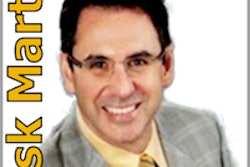
An insurance broker is suing Delta Dental of Illinois for cutting the broker out of the commission on a policy issued to the Chicago police union. Eliminating the commission allowed Delta Dental to reduce its premium and wrest the contract away from a competitor, according to the plaintiff.
The police union was an established client of broker Source 1 Benefits when the company began comparing premium prices of several insurance companies for 2013, according to the complaint, filed July 31 in Cook County Circuit Court.
Emails show that Delta Dental submitted its original proposal in September 2012 for $935,000 to provide dental coverage for more than 23,000 employees of the police union and their families.
“This case involves a massive insurance company trying to beat a small broker out of the commission it earned and the client it had served.”
against Delta Dental of Illinois
MetLife, which had provided dental coverage to the union since 2009, was selected by the union at a November meeting for a two-year contract, the lawsuit stated. Source 1 alleges that after the meeting, Delta Dental was able to reduce its premium by 8.4% to $856,000 by excluding the commission and other fees to which Source 1 was entitled.
"This case involves a massive insurance company trying to beat a small broker out of the commission it earned and the client it had served," the complaint states. "After going behind Source 1's back to steal a client that Source 1 had introduced to it, Delta Dental then used the ill-gotten brokerage fee savings to undercut its competition."
As a result, Delta Dental won the contract away from MetLife, the incumbent that had been recommended by Source 1, according to the lawsuit.
"Recognizing that it was going to lose the FOP [Fraternal Order of the Police Lodge #7] pitch on merit, Delta Dental opted for another avenue: It would approach the FOP directly, cut Source 1 out, and use the elimination of Source 1's brokerage fees to make its package more attractive," the suit states.
Lawrence Byrne, the attorney for Source 1, compared the situation to that of a real estate broker.
"It's similar to when a realtor shows you a building, then you turn around and say to the seller, 'You know what? I won't use the realtor; I'll buy it from you directly and I'll save on the commission,'" he told DrBicuspid.com.
Hazel Fisher-Gable, an attorney for Delta Dental of Illinois, was not available for comment.
Protecting their turf
The dispute comes as insurers across the U.S. are scrambling to protect their turf, fearing that state health insurance exchanges, which open October 1, will eliminate their business. The exchanges, in which small businesses and individuals will shop for policies, including dental coverage, are a key part of the Patient Protection and Affordable Care Act. But the exchanges will not pay commissions to brokers for bringing customers to the exchanges.
"Delta Dental pursued this strategy knowing full well that it was undercutting the party that brought it the business opportunity in the first place," the Source 1 complaint states. "Indeed, if insurance companies are allowed to employ these underhanded methods, the ultimate losers are not only brokers but plan participants themselves since brokers will not actively shop their client's plans on the open market."
Source 1 had compared rates of Delta Dental, Guardian, UnitedHealth Group, and Dearborn National insurers against the renewal rates offered by MetLife. Delta Dental's proposal was nearly identical to Source 1's, with the exception of the removal of all of the broker's commissions and service fees it had earned for shopping the plan, according to the complaint.
"Delta Dental's proposal was derived solely from the confidential proprietary information that Source 1 had provided it," the lawsuit alleges.
Source 1 has asked Delta Dental to pay the commission, but the company has refused, attorney Byrne said.
Delta Dental's direct pitch to the police union violated the brokerage agreement, which called for Delta Dental to pay a percentage of the premiums collected, according to Source 1. In return, the agreement provided that Source 1 would market Delta Dental's products and gather information for underwriting.
Delta Dental of Illinois has been criticized for chronic payment delays to the state's dentists who provide oral care for state employees.
In 2011, Delta Dental of Illinois was awarded a five-year contract to administer managed care networks as part of the self-insured dental plan for state workers, retirees, and dependents.
Initially, dentists who opted out of the networks were denied direct payments from the state, and payments were sent directly to patients and dentists collected from them.
Legislation has since changed that provision, and out-of-network dentists "accepting assignment" now receive direct payments from the state.



















